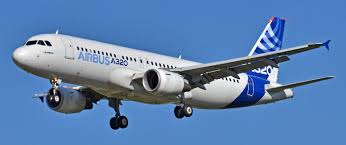
Introduction
The Airbus A320 has revolutionized the aviation industry since its introduction in 1988. As a widely used single-aisle aircraft, it has become an essential part of both domestic and international air travel. Its relevance today continues to grow as airlines seek efficient and cost-effective solutions to meet rising passenger demands.
Overview of the Airbus A320
The Airbus A320 family includes several variants, such as the A318, A319, A320, and A321, each designed to serve varying passenger capacities and market needs. Notably, the A320 series is known for its advanced technology, including fly-by-wire control systems, which improve safety and handling characteristics. As of 2023, more than 10,000 A320 aircraft have been delivered, making it one of the best-selling jetliners in history.
Recent Developments
In response to the ongoing evolution in the aviation sector, Airbus has expanded its A320neo (new engine option) family. The A320neo incorporates more efficient engines that decrease fuel consumption by up to 15%, allowing airlines to cut operational costs while reducing carbon emissions. With global initiatives aimed at decreasing aviation’s environmental impact, the A320neo has garnered significant attention from airlines looking to modernize their fleets.
The A320’s Global Impact
Airbus’s flagship aircraft has transformed how airlines operate. Companies prefer the A320 for its flexibility, efficiency, and performance, especially during it’s short-haul routes. The A320’s ability to operate in various conditions and at diverse airports has made it a popular choice for low-cost carriers and established airlines alike. In Canada, carriers like Air Canada and WestJet have incorporated the A320 into their fleets, boosting domestic and international travel.
Conclusion
The Airbus A320 continues to play a significant role in shaping the future of air travel. With the introduction of enhanced models like the A320neo, the aircraft meets the growing demand for efficiency and sustainability in aviation. As airlines look towards greener alternatives, the A320 family is expected to remain an integral part of global air traffic, influencing both economic and environmental aspects of the industry.



